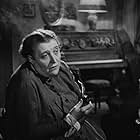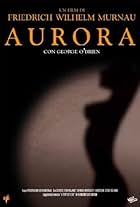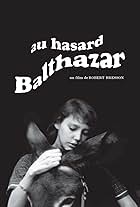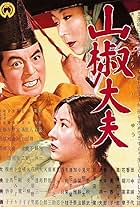VALUTAZIONE IMDb
7,9/10
32.946
LA TUA VALUTAZIONE
Una vita borghese in Francia all'inizio della seconda guerra mondiale, quando i ricchi e i loro poveri servi si incontrano in un castello francese.Una vita borghese in Francia all'inizio della seconda guerra mondiale, quando i ricchi e i loro poveri servi si incontrano in un castello francese.Una vita borghese in Francia all'inizio della seconda guerra mondiale, quando i ricchi e i loro poveri servi si incontrano in un castello francese.
- Regia
- Sceneggiatura
- Star
- Premi
- 2 vittorie e 1 candidatura in totale
Nora Gregor
- Christine de la Cheyniest
- (as Nora Grégor)
Lise Elina
- Radio-Reporter
- (as Lise Élina)
Marcel Dalio
- Robert de la Cheyniest
- (as Dalio)
Julien Carette
- Marceau, le braconnier
- (as Carette)
Richard Francoeur
- La Bruyère
- (as Francoeur)
Nicolas Amato
- L'invité sud-américain
- (non citato nei titoli originali)
7,932.9K
1
2
3
4
5
6
7
8
9
10
Recensioni in evidenza
One of the All-Time Classics
I'm sure that pretty much anyone who decides to watch this film will be aware of it's status among many critics as one of the greatest films ever made. It may not be exactly that, but it is still a very good movie.
The basic story involves a group of wealthy French aristocrats getting together for a weekend's hunting party at a country chateau just before the start of World War 2. However it's not long before the guests, their hosts and the servants are involved in some complex romantic problems.
The film is beautifully made. Every shot is perfectly well composed and filmed. The film's director, Jean Renoir, was the son of the famous Impressionist painter Auguste Renoir, and Jean Renoir certainly had a good painter's eye himself.
The film depicts a world of casual cruelty and betrayal hidden behind it's polite and civilised facade. Everyone has to play by the iron-bound social rules ("the rules of the game") and those who don't, suffer for it.
Cynical, but often very amusing, this film provoked riots when it premiered in France in a severely shortened form. It exists in various different lengths. The version I saw was a restored 110 minute version on DVD.
This is a film that will not be to all tastes, but it is required viewing for all fans of French cinema or for anyone interested in the history of world cinema.
The basic story involves a group of wealthy French aristocrats getting together for a weekend's hunting party at a country chateau just before the start of World War 2. However it's not long before the guests, their hosts and the servants are involved in some complex romantic problems.
The film is beautifully made. Every shot is perfectly well composed and filmed. The film's director, Jean Renoir, was the son of the famous Impressionist painter Auguste Renoir, and Jean Renoir certainly had a good painter's eye himself.
The film depicts a world of casual cruelty and betrayal hidden behind it's polite and civilised facade. Everyone has to play by the iron-bound social rules ("the rules of the game") and those who don't, suffer for it.
Cynical, but often very amusing, this film provoked riots when it premiered in France in a severely shortened form. It exists in various different lengths. The version I saw was a restored 110 minute version on DVD.
This is a film that will not be to all tastes, but it is required viewing for all fans of French cinema or for anyone interested in the history of world cinema.
Every Film Student Knows This One
"The Rules of the Game" is one of those movies that would be easy to be disappointed by, because it's constantly lauded as one of the greatest movies ever made, and anyone who's spent any time studying film knows that at some point you have to see this movie if you're going to consider yourself a film connoisseur. Well, it is excellent, though it's not excellent in a lot of obvious ways, and I could forgive someone for watching it and having a lukewarm reaction on a first viewing.
The film is sort of reminiscent of Bergman's "Smiles of a Summer Night" (though of course Renoir's movie came first) in its use of a country estate filled with a bunch of well-to-do's and the servants waiting on them. It also put me in the mind of Evelyn Waugh's novels, as Renoir uses a thin glaze of humour to mask some bitter truths about class and social standing. There are some downright slapstick moments that feel like something out of a silent comedy, but there are also some sober moments that give the film a very serious grounding.
What impressed me most was the fluidity of Renoir's direction. The camera is a constant observer, gliding through the vast house, following one character only to switch direction and follow another as he or she walks past. The viewer feels like a voyeur, and Renoir gives the impression that these characters would be behaving somewhat differently if they knew you were watching. I can't explain exactly how he does that, but the feeling comes across distinctly.
Probably needs to be watched a few times for a full appreciation. In fact, I need to watch it again myself.
Grade: A
The film is sort of reminiscent of Bergman's "Smiles of a Summer Night" (though of course Renoir's movie came first) in its use of a country estate filled with a bunch of well-to-do's and the servants waiting on them. It also put me in the mind of Evelyn Waugh's novels, as Renoir uses a thin glaze of humour to mask some bitter truths about class and social standing. There are some downright slapstick moments that feel like something out of a silent comedy, but there are also some sober moments that give the film a very serious grounding.
What impressed me most was the fluidity of Renoir's direction. The camera is a constant observer, gliding through the vast house, following one character only to switch direction and follow another as he or she walks past. The viewer feels like a voyeur, and Renoir gives the impression that these characters would be behaving somewhat differently if they knew you were watching. I can't explain exactly how he does that, but the feeling comes across distinctly.
Probably needs to be watched a few times for a full appreciation. In fact, I need to watch it again myself.
Grade: A
A critique of French society between the wars
A weekend party assembles at the château of the Marquis de la Chesnaye. Among the guests André, an aviator, is in love with the Marquis's wife, Christine; the Marquis himself is conducting an affair with Geneviève; Octave, an old family friend, is also secretly in love with the Marquise. Meanwhile a poacher, appointed servant by the mischievous Marquis, comes to blows with the gamekeeper over the latter's flirtatious wife.
The set-up may remind one of The Shooting Party or Gosford Park, but the debt is naturally in the present film's favour. Rather, the upstairs-downstairs intrigue, the mingling of comedy with drama, and the setting prior to cataclysmic social/political change owe much to Beaumarchais's Le mariage de Figaro. Which explains the hostility of audiences and government alike on the film's release; it was cut, then banned outright, and not reconstituted until well into the 1950s.
To tap the source of the disquiet aroused by this superficially fluffy piece of bedroom farce ('Surely just the French doing what they do best?'), one must look beyond the typical observation that it was 'socially insidious because it was a clear attack on the haute-bourgeoisie, the very class who would shortly lead the troops against the Germans'. The auto-critique goes deeper than that.
Consider. The lower orders are no better than their irresponsible masters: the women are no less immoral, the men just as concerned to preserve their foreheads from cuckoldry. This is the culmination of Figaro's contract with the Count: he enjoins the latter to behave like an honest man, as befits his station; two centuries later, not only has the nobility welshed on the deal, it has brought the servant classes down with it. Renoir serves up for the French a portrait of a society which is rotten from top to bottom. 'The Rules of the Game' are: keep up appearances, and somehow the whole charade will be preserved indefinitely (barring Adolf and his Panzers, that is).
André, the aviator, the crosser of the Atlantic (distance, perspective), is the one who threatens the edifice. Being Christine's lover is not enough; she must elope with him, it must be 'honest'. If she does this she will be showing that feelings matter more than money and position. The choice is too much for her and she runs for cover with Octave, and thus sets in motion the mechanism by which everything ends in tragedy but the status quo is maintained, for now.
The working out of this theme in Renoir's hands leads to some striking juxtapositions of tone. Renoir the 'humanist', like Octave whom he plays, was a lover, and forgiver, of humanity. It was not in him to condemn without affection. In one scene the gamekeeper chases his rival through the drawing room discharging a pistol, while the guests barely look up from their cards: he is merely playing by the rules, after all. It was perhaps the coexistence of farcical sequences like this with the wanton slaughter of wildlife in the hunt scene that audiences found hard to take. Renoir himself wrote: 'During the shooting of the film I was torn between my desire to make a comedy of it and the wish to tell a tragic story. The result of this ambivalence was the film as it is.' Amen.
The set-up may remind one of The Shooting Party or Gosford Park, but the debt is naturally in the present film's favour. Rather, the upstairs-downstairs intrigue, the mingling of comedy with drama, and the setting prior to cataclysmic social/political change owe much to Beaumarchais's Le mariage de Figaro. Which explains the hostility of audiences and government alike on the film's release; it was cut, then banned outright, and not reconstituted until well into the 1950s.
To tap the source of the disquiet aroused by this superficially fluffy piece of bedroom farce ('Surely just the French doing what they do best?'), one must look beyond the typical observation that it was 'socially insidious because it was a clear attack on the haute-bourgeoisie, the very class who would shortly lead the troops against the Germans'. The auto-critique goes deeper than that.
Consider. The lower orders are no better than their irresponsible masters: the women are no less immoral, the men just as concerned to preserve their foreheads from cuckoldry. This is the culmination of Figaro's contract with the Count: he enjoins the latter to behave like an honest man, as befits his station; two centuries later, not only has the nobility welshed on the deal, it has brought the servant classes down with it. Renoir serves up for the French a portrait of a society which is rotten from top to bottom. 'The Rules of the Game' are: keep up appearances, and somehow the whole charade will be preserved indefinitely (barring Adolf and his Panzers, that is).
André, the aviator, the crosser of the Atlantic (distance, perspective), is the one who threatens the edifice. Being Christine's lover is not enough; she must elope with him, it must be 'honest'. If she does this she will be showing that feelings matter more than money and position. The choice is too much for her and she runs for cover with Octave, and thus sets in motion the mechanism by which everything ends in tragedy but the status quo is maintained, for now.
The working out of this theme in Renoir's hands leads to some striking juxtapositions of tone. Renoir the 'humanist', like Octave whom he plays, was a lover, and forgiver, of humanity. It was not in him to condemn without affection. In one scene the gamekeeper chases his rival through the drawing room discharging a pistol, while the guests barely look up from their cards: he is merely playing by the rules, after all. It was perhaps the coexistence of farcical sequences like this with the wanton slaughter of wildlife in the hunt scene that audiences found hard to take. Renoir himself wrote: 'During the shooting of the film I was torn between my desire to make a comedy of it and the wish to tell a tragic story. The result of this ambivalence was the film as it is.' Amen.
I Didn't Get the Rules.
'The Rules of the Game' is one of the most important films in the history of the cinema, and it is considered the be one of the greatest achievements in film. Yet, this is one of those masterpieces that flies over my head. I'm not trying to say it was a bad movie, a total waste of time, and completely overrated piece of cinema. No, contrariwise, I found the film to be very entertaining. I enjoyed how the pace kept growing faster and faster, and the love triangles took very unexpected geometrical shapes. The comedy was wonderfully balanced between quite raunchy (considering the time the movie was released) and subtle innuendos. I can understand why this film didn't get that warm reception upon its release. I liked the cast, and chemistry between them. Characters were multidimensional, a feature that lacks in most modern dramas (not to mention comedies, that seems to be dead genre today). And what about the visual style - how the camera was almost like the part of the cast, it seamlessly moved along with the action. I liked the movie, but unlike most of the cinema aficionados, I didn't find 'The Rules of the Game' that exciting. Fun, and memorable, and something that I probably will watch again when I have the chance, but today, I have to admit - I didn't get the hype. It didn't touch me the way to be more than fantastically acted, cleverly written situation comedy.
I'll rate it seven stars at the moment, but I'm sure that I will give another try some times.
I'll rate it seven stars at the moment, but I'm sure that I will give another try some times.
Everybody Has Their Reasons
A satirical dive into the superficial lives, social pretences & moral depravity of the French upper-class society, The Rules of the Game (La Règle du Jeu) is a romance, comedy, tragedy & social critique, all mingled into one fluid, farcical & fascinating delight that seamlessly traverses from one eventful situation to another, and gets added assistance from its technically sound production.
Co-written & directed by Jean Renoir (La Grande Illusion), the story intersects the lives of the riches & their servants spending a weekend together at a chateau and unravels the drama brewing between them with both spontaneity & smoothness. Without disturbing the film's fun, lighthearted & free-flowing mood, Renoir takes a jab at this close-knit society & the morally bankrupt set of rules it functions on.
One of the film's highlight is the sublime camerawork that effortlessly navigates from one character to another, and by employing deep-focus it keeps its viewers aware of all that unfolds in foreground & background. The characters aren't that interesting but the performances are nonetheless impressive from the ensemble cast, all portraying their respective roles with conviction and not leaving much to complain about.
Overall, The Rules of the Game is an exquisitely layered social commentary that takes an incisive swing at the upper-class clique that lives by a set of rules yet is devoid of morals & values. Steered by Renoir's solid direction & rich storytelling, and furthermore benefiting from fab work in the technical & acting department, this French classic makes for an amusing & entertaining ride, and still somewhat lives up to its legacy. Definitely worth a shot.
Co-written & directed by Jean Renoir (La Grande Illusion), the story intersects the lives of the riches & their servants spending a weekend together at a chateau and unravels the drama brewing between them with both spontaneity & smoothness. Without disturbing the film's fun, lighthearted & free-flowing mood, Renoir takes a jab at this close-knit society & the morally bankrupt set of rules it functions on.
One of the film's highlight is the sublime camerawork that effortlessly navigates from one character to another, and by employing deep-focus it keeps its viewers aware of all that unfolds in foreground & background. The characters aren't that interesting but the performances are nonetheless impressive from the ensemble cast, all portraying their respective roles with conviction and not leaving much to complain about.
Overall, The Rules of the Game is an exquisitely layered social commentary that takes an incisive swing at the upper-class clique that lives by a set of rules yet is devoid of morals & values. Steered by Renoir's solid direction & rich storytelling, and furthermore benefiting from fab work in the technical & acting department, this French classic makes for an amusing & entertaining ride, and still somewhat lives up to its legacy. Definitely worth a shot.
Lo sapevi?
- QuizAfter the success of La grande illusione (1937) and L'angelo del male (1938), Jean Renoir and his nephew Claude Renoir set up their own production company, Les Nouvelles Editions Françaises (NEF). This was their first and last production, as the company went into bankruptcy and was dissolved due to the ban of their movie after just three weeks of shows.
- BlooperWhen the hunting party starts, the animals (notably the rabbits) barely move. Even when the beaters are close to them, they move at the last moment. This because the animals were not wild as the plot required, but actually bred in captivity and hence used to human presence. For information, the killing is real: many animals died during the movie.
- Versioni alternativePrologue to 1959 reconstructed version: "Jean Gaborit and Jacques Durand reconstructed this film with the approval and advice of Jean Renoir, who dedicates this resurrection to the memory of André Bazin."
- ConnessioniEdited into Histoire(s) du cinéma: Seul le cinéma (1994)
I più visti
Accedi per valutare e creare un elenco di titoli salvati per ottenere consigli personalizzati
- How long is The Rules of the Game?Powered by Alexa
Dettagli
- Data di uscita
- Paese di origine
- Lingue
- Celebre anche come
- The Rules of the Game
- Luoghi delle riprese
- Azienda produttrice
- Vedi altri crediti dell’azienda su IMDbPro
Botteghino
- Budget
- 5.500.500 FRF (previsto)
- Lordo Stati Uniti e Canada
- 273.641 USD
- Lordo in tutto il mondo
- 273.641 USD
- Tempo di esecuzione
- 1h 50min(110 min)
- Colore
- Proporzioni
- 1.37 : 1
Contribuisci a questa pagina
Suggerisci una modifica o aggiungi i contenuti mancanti

![Guarda Bande-annonce [OV]](https://m.media-amazon.com/images/M/MV5BODZjNTM0ZjAtZDJkMS00NTI2LTkwNDUtYmVkZWU5NzNmYTBkXkEyXkFqcGdeQXRyYW5zY29kZS13b3JrZmxvdw@@._V1_QL75_UY281_CR0,0,500,281_.jpg)





































